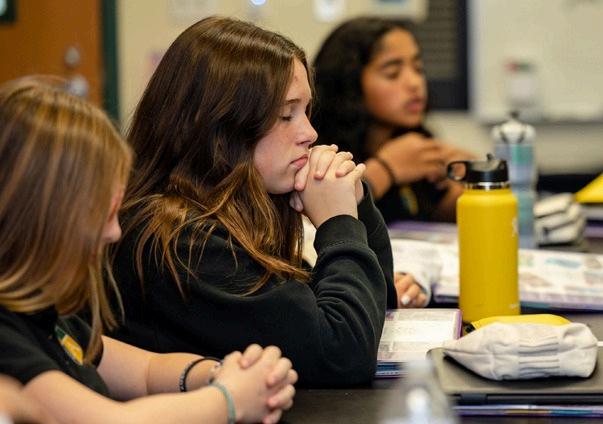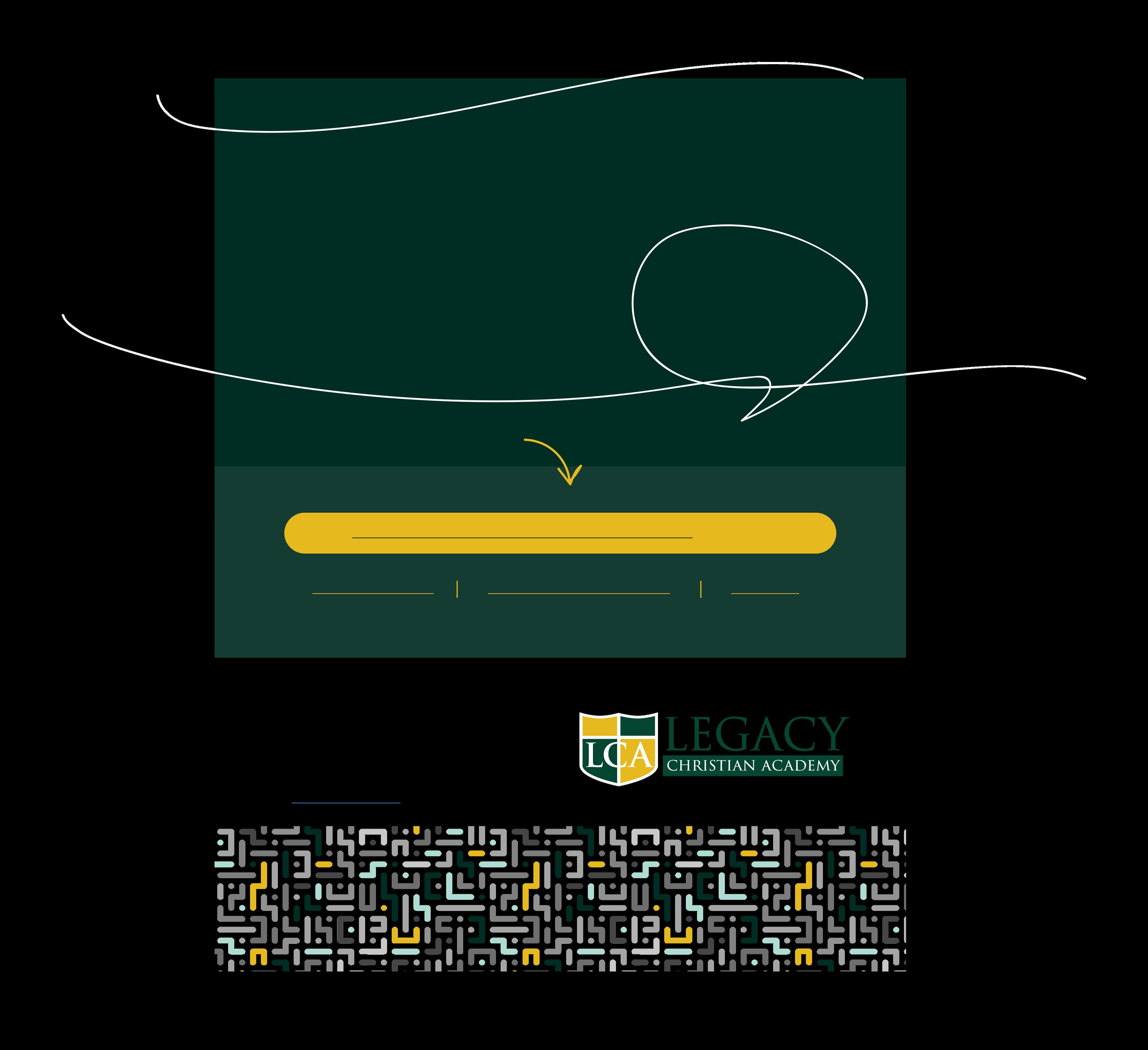FACTSforParents!

Using Brain-Based Science to Help Students & Parents Make the Most of These Important Years

Middle School .
It’s a new and exciting season one of remarkable growth and change for your child They are learning how to better self-advocate, distinguish their strengths, and identify personal interests As a parent, you know that these are important, and sometimes challenging, years You want to be an anchor for your child a consistent source of love and support as they build their identity in Christ.
But that responsibility can sometimes leave you feeling unprepared and anxious about what’s ahead.

Understanding how your student’s brain is developing is an opportunity to know how to stay connected with them and encourage positive growth during these formative years. This e-book was designed to help parents like you who want to be prepared for what’s ahead, so your family can look back on this time fondly.
We’ll look at important topics and questions, such as:
• Physiologically, what happens to the brain in early adolescence?
• Your child will have strong (and competing!) desires how can they be met in a safe, fulfilling way?
• As a parent, what are some strategies for keeping an active (but not overbearing) role in your middle schooler’s life?
If you are searching for a meaningful middle school experience that offers more than just a transition between elementary school and high school, take the next step and schedule a Connection Call with our admissions team. We look forward to meeting your family and exploring opportunities for your child to learn and lead at Legacy Christian Academy.
Sincerely,
CheriMosley DIRECTOROFENROLLMENT MANAGEMENT
If middle school is on the horizon for your family, you’ve probably asked yourself these questions:
What does the best learning environment for my child look like?
How will my child’s school partner with my family to spiritually develop my child?
What can I do to ensure my child is safe, physically, socially, and emotionally?
How can I stay connected to my child now and throughout their teenage years?
Will my child maintain strong connections to our family values as they grow in independence?

During the middle school years, the area of the brain responsible for decision making is under construction.
Fiction:

Middle school students have little control over their behavior until the prefrontal cortex is fully developed.
The bulk of brain growth that occurs in the adolescent years is in the prefrontal cortex, commonly known as the decision-making zone. Fully developed around age 25, it helps us predict the consequences of our actions, mediate conflict, and set goals. While the prefrontal cortex is still being developed, students are working through how to navigate relationships, avoid being overly impulsive, calculate risk, and make wise choices that will help, and not hinder, their future opportunities. Many parents feel that their middle schoolers are emotional, and at times even irrational. This is because they are relying on another part of their brain the amygdala to process and problem solve As the prefrontal cortex continues to develop, they steadily become more equipped to make sound decisions Parents, teachers, and other mentors can help middle schoolers develop skills that enhance this growth
How we help:
Foster Critical Thinking
We believe in providing a creative, active learning environment for our students, capitalizing on this period of rapid brain growth and fostering critical thinking skills, prompting students to create innovative solutions to challenging problems Students are taught to both focus on and appreciate the process of learning, which keeps them engaged and encouraged to give their best
Encourage Responsibility and Ownership
Through LCA YOU, middle school students experience 16 lessons, presentations, and discussions that introduce vital life skills, including how to deal with stress and anxiety, conflict resolution, study skills, finances, nutrition, and more. WIN, or What-I-Need, provides students with an opportunity to do an academic self-check to identify content areas that might need extra attention and have dedicated time with teachers built into the academic day.
Social Emotional Support
Today’s middle schoolers are faced with unprecedented challenges Their brain development is at a critical stage socially, emotionally, and cognitively as they progress in their journey of self-discovery. We have a Guidance Counselor on staff dedicated to supporting our middle school students’ spiritually, emotionally, relationally, and academically, as well as a team of therapy dogs
The average attention span of the middle school student is less than 15 minutes.
Middle school students are unable to stay focused long enough to deep dive on any subject.

Remember when your toddler was into everything and seemingly couldn’t sit still? Parents don’t often anticipate their children going through a similar stage in early adolescence, but thanks to brain research, we know it’s true. Some researchers have even pointed out that increasing technology use throughout childhood has shortened teens’ attention spans, making it difficult for them to maintain interest in a single subject or activity for more than 10-12 minutes.
How we help:
Intentional Scheduling
We’re intentional about how we structure our middle schoolers’ days. Morning athletics helps students get moving and mental breaks are built into the seven-period school day Community Time provides daily programming that supports devotional time, Squad Time, LCA YOU topics, and life skills. On Fridays, that time is extended for chapels, pep rallies, and other school-wide activities
Individual and Small Group Learning
Teachers keep students engaged through a combination of individual and group activities, teaching self-management as well as collaboration Hands-on projects help keep all students engaged, especially kinesthetic learners.
Academic Self Checks
WIN, or What-I-Need, is designated time set aside for students, with the assistance of a teacher, to identify areas of need and to get extra help in those areas In addition to helping close academic gaps, WIN helps students learn self-monitoring and management.when their teachers coach them in a meaningful way.
Young teenagers need guidance as they learn to navigate relationships and social pressures.

Middle schoolers are at an age where they are most insecure and often allow emotions to drive their decisions. At times, you might feel your child is a walking contradiction of competing desires as they simultaneously fight for independence and yearn for approval and love. By listening to them and validating their feelings, you can show them that you want to understand them. This type of active listening not only models the attributes of a healthy relationship, but it can help them find a way to accept their struggles as opportunities for growth making them more confident in their identity, and less susceptible to social pressures

How we help:
Christian Values are Taught and Modeled
Through LCA YOU, lessons abouthealthy relationships, and faculty who model Christian values, middle schoolers are equipped with the right tools and positive influences. Our school culture sets expectations for kindness and respect and helps students to model the example set by Christ himself.
Constructive Character Development
Legacy Christian’s community,curriculum, and culture emphasize positive character traits, such as integrity, gratitude, humility, honor, selfcontrol, and discernment Every Monday morning during Community Time, students can focus on devotionals, prayer, and one-on-one time with God, and they’re encouraged to express gratitude and write encouragement cards for their peers
Authentic Relationship Building
Our House program is a built-in support system for middle schoolers as they’re placed in one of four Houses and paired with peers to create Squads and Families. Our intimate learning environment allow teachers to know their students individually, encouraging them to discover passions and overcome challenges Peer relationships are nurtured through group projects in the classroom, athletics, chapel, and co-curricular programs tools they need to provide additional social emotional support
Middle school students are eager to find their place in the world, strengthen values, and develop a strong identity.
Middle school students tend to pull away from family values and toward peers.
Middle school is a very formative season of life. During these years, neural pathways in the brain are still malleable, which means students are quite literally developing their own identities as they ponder questions such as “Who am I?” and “Who do I want to become?” What they need most is context to help answer these questions and encouragement as they explore what’s ahead. Before they can decide where they’re going, they need a strong sense of where they’re from. This foundation fosters their development in a powerful way, and it is strengthened when alignment exists between home and school.

How we help:
Discovering Their Identity in Christ
We’revery intentional about our middle school experience -- which we refer to as “The Bridge ” We combine academic and spiritual programming, objectives, and dedicated teachers to help students connect with each other, mentors, and God. Students are expected to model Christ-like behavior and to set a positive example for fellow students
Identifying Their Strengths
Each middle school studenttakes a dedicated assessment to help them understand how God has uniquely created them, as well as their peers, which positively affirms that we are all created in God’s image and we all have value. The Strengths Finder reveals a student’s strengths and abilities, helping to identify new areas of focus, possible courses of study, and career paths, as well as assisting teachers with how best to challenge their students.
Cultivating Community
OurHouse programisdesigned to foster community and connection As students are placed into their Houses and then Squads and Families they immediately belong to a peer group that spans across all of LCA middle school, not just their grade or class The House system provides leadership and mentorship opportunities for students, and built-in student support.
Middle school is one of the most effective times to develop leadership skills.
Leadership opportunities should be deferred to older teens or young adults who are more responsible.
How we help: Fiction:
In many traditional school settings, middle school students feel “stuck” in a transitional stage of life, where they’ve already developed foundational skills but don’t have many opportunities to put them into practice But the 21st century calls for strong leadership. Critical thinking, decision making, problem solving, planning, and communicating are skills best developed prior to adulthood, when they need to be put into practice daily. Those who get to lead in middle school begin to see leadership as a part of their identity, and have a sense of purpose to impact the world.

Teaching Personal Responsibility
Legacy Christian middle schoolersare taught accountability for their actions academically, socially, and spiritually Programs like LCA YOU and WIN equip students with the tools and skills to tackle challenges and close gaps.
High School Preparedness
From 5th-8th grade, we are readying students for the challenges and expectations of high school From more rigorous academics to increasing personal responsibility, middle schoolers are mastering time management, organization, and self-discipline In addition, they’re perfecting soft skills like empathy, kindness, and listening through daily interactions in the classroom, on the field, or at a House meeting.
Leadership Role Options
Webelievein learning by doing. Leadership skills are developed through roles and responsibilities within Houses, Squads, and Families The visual and performing arts offer opportunities for students to practice selfexpression. Mission work and service projects provide real-world experience and personal growth Athletics and team sports teach sportsmanship and encourage teamwork
Building during a season of rapid growth
What does the LCA middle school experience look like?
Our middle school program is known as “The Bridge” and it encompasses academics, programming, and culture through five pillars knowledge and wisdom, social and emotional, community and connection, spiritual and leadership, and sacrifice and service.
We recognize that each student is uniquely gifted with different strengths and abilities, and emphasize the many rewards of learning and giving your personal best.

Students strengthen their athletic abilities through interscholastic sports. Starting in 7th grade, students can compete in eight different sports
Academic and enrichment offerings cover both core subjects and individual interests and passions. Students can explore creative self-expression through the fine arts, and spiritual expression through chapel and devotional time.
Life skills and Christian values are taught and modeled inside and outside the classrooms, providing middle schoolers with a firm foundation before they transition to high school.
Service projects and mission work are built into our curriculum, including Missions Month, a school-wide initiative to assist both local and Houston-area nonprofits in providing for residents in need

Growing the next generation of thinkers and leaders

Core Subject Areas
Bible
History
English
Math
Science

Legacy Christian Academy
usescontemporary research-based instructional methods to supportstudent learning and hands-on experiences to keep them engaged Honors courses allow students to explore content at a more rigorous pace, and with greater depth and complexity. Our academic program is enriched with thought-provoking extracurriculars that build confident children who are eager to understand the world of possibilities that await them.
Exploratories
STEM Leadership
Beginner Band
Concert Band
Digital Art & Design
Marching Band
Spanish
Studio Art I & II
Theater Production
Worship & Vocal Arts
Interscholastic Sports (starting in 7th grade)
Baseball
Basketball
Cross Country
Football
Soccer
Softball
Sporting Clays
Swimming
Track
Volleyball


